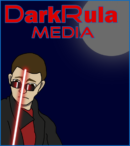The film released around this time last year ended the Skywalker Saga on a rather divisive note. Plenty of thoughts were shared over how it handled the return of Palpatine, along with the story in general. Again, the novelisation released a few months after the film, taking on the expanded edition name and setting out to fix what issues it could raised by critics and fans alike.
For me, I felt the film had a lot to like even with the rushed pacing and the lacking ending. The only things I’d wanted to see with the novelisation were the fixing of these two things. However, it did take me an age to get to reading it, despite buying it when it first released. 2020 has been a trainwreck of a year, and so I’ve been finding more comfort in games than any other medium. However, I’ve been doing a complete novelisation marathon throughout the year, so it was inevitable I would get to this final one.
Straight from the off, the book lands us at Ajan Kloss, with Leia teaching Rey and reminiscing on her own training. And again later on, there’s a naturalness to the conversations which couldn’t ever have happened in the film with how they overcame the loss of Carrie Fisher. The book gives the feeling that Rey is truly being trained, with the course through the forest being just one part of it.
Even with other interactions not within the film, that naturalness still resides. It has nothing to do with giving Leia more lines, as the book crafts her as more reserved since her encounter with deep space, but solely down to allowing her thoughts to be known. Getting deep inside her thoughts reveals everything she doesn’t say, and there’s a lot of that within the first quarter of the book.
Elsewhere within that first quarter is a bit of change in the timeline of events. After seeing Rey’s training, the journey of Kylo Ren to find Palpatine is shown in full with the conversation between Palpatine and Ren translated to written form nicely. The scene also sets up that Kylo’s desire to rule with Rey has become stronger since their last encounter. That only gets seen in the film when the two start communicating through the Force-dyad.
As I’d hoped, the pacing is much better with the book than the film, again putting in small additional interactions between characters, and even small scenes not within the film, to flesh out the intentions of characters a lot better than comes across in the film. Even just small things such as Lando revealing that the First Order took his daughter and other children of the old Rebellion to break their spirit when those children appeared as Stormtroopers gives a greater connection to the characters and events.
Such things slot naturally into the interactions from the film. The major events are all translated perfectly into writing, with small things such as the comedic torch segment fitting in well despite the lack of visual comedy. By adding onto the characters and events, nothing is lost in the retelling. It is all strengthened, which is how I came to enjoy the story being told a lot more than when watching the film.
There’s a larger addition in Zorii’s story being told here. It gives a greater connection to the fact that it is the planet that gets destroyed by the Final Order, and also the reason why she arrives as part of Lando’s raiding party. It’s a great addition, a nice side course from the main story. Being the side course it is, it’s understandable why it isn’t part of the film, but it would have helped forge a connection to the planet and why it got destroyed.
Sure, we know Poe lived there at one point and he has connections to the place, but that’s not reason enough to destroy it. Not reason enough to make an example of it. At least with the book, the audience can connect with its destruction because they know some of the history of it. We never see Alderaan before its destruction, but the story in A New Hope had already forged its connections. We cared because Leia cared. In The Rise of Skywalker, there’s nothing on that level, so I thank Rae Carson for crafting these connections.
Whether it be with the underlying message of never giving up even in the darkest of times, or the redemption of Ben Solo, the book manages to convey such a lot better than the film. For me, it even made me care about the final battle, which is something I’d said in my review lacked a narrative direction and a reason to be there. And when you consider that most of it – aside from those small additions – is translated from the film, that’s a major achievement.
Yes, you could just say that’s my liking for books over film, but as I’d already said, this novelisation fixes the pacing of the film by giving a bit more connection to the people and events. If just the little extra additions were added to the film, I’d probably find it that bit more enjoyable. I would think, then, you all know which of the two I’m favouring with The Rise of Skywalker.
It’s not in the same league as the Revenge of the Sith novelisation, but The Rise of Skywalker’s does a lot more for the story than the others have to my mind. It might be the near exact same, but the additions whether small or large help to make the story better. It gives a reason to care for what’s happening. Watch the film first, then read the book. It’ll supplement the film nicely rather than detract from it, and that is the best form a novelisation can take.




